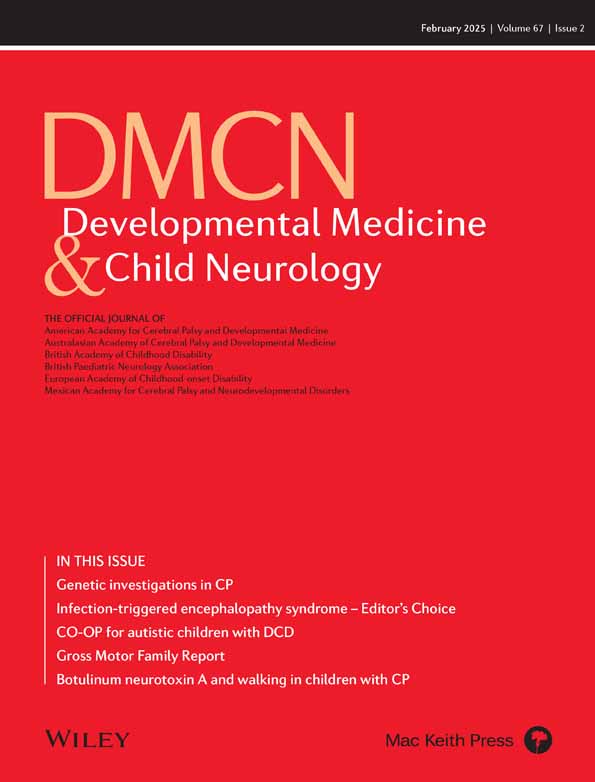Transitioning health care for adults with cerebral palsy
This commentary is on the original article by Manikandan et al. on pages 235–244 of this issue.
Abstract
This commentary is on the original article by Manikandan et al. on pages 235–244 of this issue.
There is a growing awareness that individuals with cerebral palsy (CP) and other neurodevelopmental disabilities face unique issues in adulthood due to the numerous complications arising from their particular disability during the developmental years. There has been great emphasis on transition from childhood to the adult years; however, there are multiple transitions to consider, including from young adulthood to middle age, as well as the transition into the geriatric years. Throughout these transitions, a growing need exists for specific health care that is more coordinated than is required for adults without CP. Adults with CP are at high risk for health problems because of differences in their anatomy, physiology, and function which can lead to problems with physical development and participation. These changes, combined with environmental and social barriers, are associated with increased sedentary activity, decreased physical activity, and subsequent early onset of chronic diseases, pain, and functional loss.1 Unfortunately, as eloquently described by Manikandan et al.,2 there are numerous challenges to accessing health care that contribute to negative experiences and increase the risk of poor outcomes, either through errors in management or in the individual themselves simply deciding it is not worth the struggle to obtain proper care.
A major theme that comes from this paper is the need to develop a lifespan model of care. Professional schools ‘box’ neurodevelopmental disabilities into their pediatric rotations. Pediatric practitioners generally do not care to work with adults, and adult providers lack information about providing appropriate care for conditions historically considered specific to pediatrics. A major part of this problem is the broad knowledge gap related to best practices for this population.3 There is a critical need to continue to increase the information base in this area; to develop evidence-based care pathways and practice guidelines; and to introduce CP and other neurodevelopmental disabilities into adult health care curriculums. Another theme and critical need are for health care leaders, policymakers, and advocates to work together to provide care and surveillance that provides high value to individuals with lifespan disabilities, as well as to the providers.1
It is important, however, to focus on the role that individual factors play in the complexity of accessing health care. Physical factors such as frailty will make common screening tools such as body mass index less useful. Functional limitations will interfere with the ability to obtain tests such as mammograms and colonoscopies. From our personal life experience (DW), social issues such as poverty, inadequate housing, and access to transportation can be a challenge regardless of if the individual lives in a rural area or an urban setting. We have also seen that adults with CP who need caregiver support are often depending on aging parents, and recruiting replacement caregivers is difficult.4 Mental health issues5 and cognitive impairment interfere with the ability to be compliant with care protocols. Even higher functioning individuals have high risk of executive function deficits,6 anxiety, and/or depression.5 Providers need to account for these factors in care plans; writing prescriptions and referrals for the patient to manage is not enough. In general, most individuals with disabilities and their primary caregivers/support persons possess limited skills to navigate our complex health care system. Broad-based education and training for service recipients to acquire such skills is a critical need. Health care providers and their professional associations must liaise with the disability community to provide consumers with opportunities to acquire self-advocacy skills and the necessary knowledge to navigate the health care system. This education and training must not take place in our respective silos of operation. We must ensure that any education/training includes representation from all stakeholders if we are to achieve lasting change and collaboration.
At present, the transition to geriatrics is uncharted territory as the next frontier for providing high-value care for aging adults with CP. There is still much to do for the earlier stages of adulthood. We must address health care system problems and the knowledge and skill gaps of both providers and consumers to provide successful care across the lifespan.
Open Research
DATA AVAILABILITY STATEMENT
Not required.




